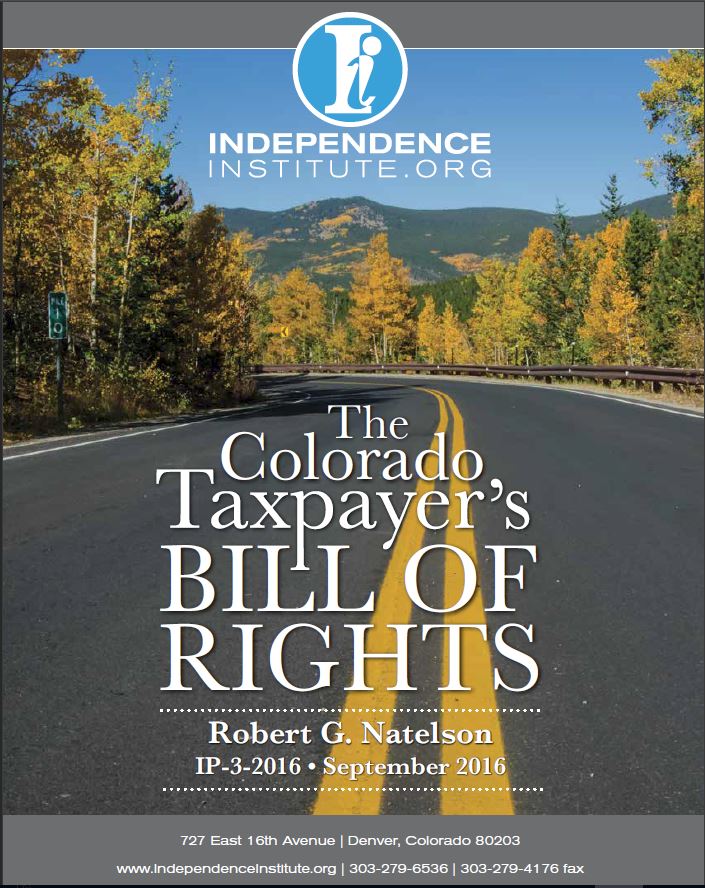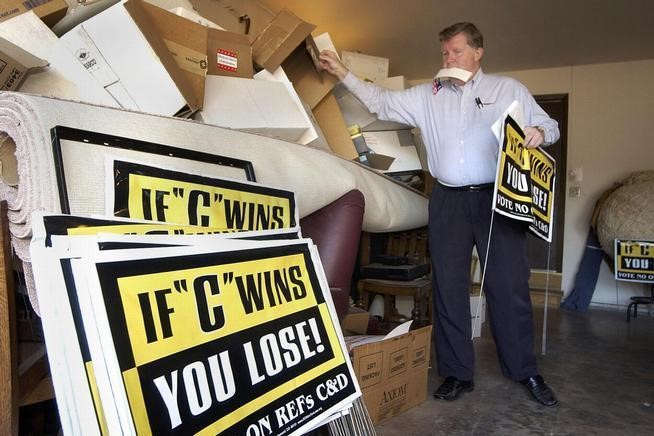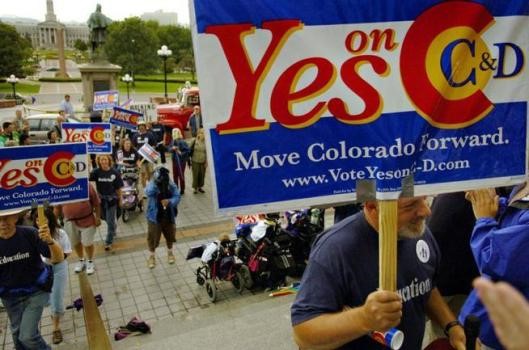Colorado Taxpayer’s Bill of Rights by the Independence Institute
Category Archives: Editorial
Douglas Bruce’s response to Rural Republicans tell lawmakers it’s time for action on Hospital Provider Fee
Let’s apply ten conservative political principles to this hospital provider fee situation.
- 1. Limiting growth of state government requires setting state spending priorities.
- 2. Allowing any business to fail that has insufficient market demand is called the free market. Government intervention violates the meaning of a free market.
- 3. What does the most good for the most people–propping up failing businesses or providing broad benefits of limited government services equally to everyone?
- 4. Who was forced to live in remote rural areas with fewer services? (No one.)
Changes to TABOR will hurt state taxpayers
Changes to TABOR will hurt state taxpayers
A Republican-sponsored bill in the Colorado legislature would likely let state government keep more of your tax money whether it needs it or not.
 In 2005, Referendum C suspended Colorado’s constitutional limit on the amount of tax revenues that the state could keep. Called the “TABOR timeout,” the Referendum allowed the state to reset the limit on state revenue collection at the highest amount of annual revenue received between June FY 2005-6 and FY 2009-10. Referendum C was a permanent tax increase, which has increased Colorado state spending by an estimated $2.6 billion over the last decade. At present, only 38 percent of state spending remains subject to TABOR.
In 2005, Referendum C suspended Colorado’s constitutional limit on the amount of tax revenues that the state could keep. Called the “TABOR timeout,” the Referendum allowed the state to reset the limit on state revenue collection at the highest amount of annual revenue received between June FY 2005-6 and FY 2009-10. Referendum C was a permanent tax increase, which has increased Colorado state spending by an estimated $2.6 billion over the last decade. At present, only 38 percent of state spending remains subject to TABOR.
Now the tax and spend coalition wants more.
Some state officials are understandably delighted by any measure that relieves them of the drudgery of running the state on a tight budget. It is much less taxing to be a state legislator when revenues are rising than when they are falling. When spending must be cut, difficult choices are required. No one is happy.
Shot at Bruce?
Shot at Bruce?
But what is the purpose of the paragraph saying that ?“TABOR was passed in 1992 on its third try by Colorado tax rebel Doug Bruce” who has owned “run-down Pueblo properties in the past”?
Is it to show that in 1990 and 1991, legislators told voters, “Hey trust us; you voters don’t need TABOR to protect yourselves from tax increases,” and that voters believed twice — but not three times?
Is it to show that Bruce is really a Pueblo guy at heart because he, too, has owned run-down property in Pueblo, a city with a website dedicated to run-down property, a city with a newspaper that rightly criticizes run-down property, but a city with a municipal government that can’t seem to protect its citizens from the scourge of run-down property, and that such a state of affairs could lead taxpayers to rebel and to deny tax increases?
Is it to show that if you get lucky, the guy owning run-down property on your street might save his fellow citizens $3 billion?
Which brings us to the editorial in the same issue of The Chieftain. The editorial complains that the city government wants more money, but they don’t want to ask for it, as the law requires; they want to simply take it by calling a tax a fee.
I hope The Chieftain appreciates the irony. It is this disassembling by elected officials that is causing this discussion to occur and voters to rebel, but without the voter rebellion and approval of the TABOR law, your editorial would be a blank page — no discussion of taxes or of fees.
Mark Clinard
Florence
Dave Wallace: Ballot measure 1A
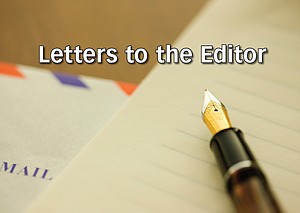
Friday, March 10, 2017
To the editor:
Reading through the mailing I received that was also sent out to all registered voters referring to Measure 1A it becomes very obvious the City believes it desperately needs additional funding which will be the outcome if 1A passes. I am in agreement that it probably is necessary providing the information presented to the public in this “Notice of Election” and along with the mailing that accompanied this month’s utility billing is in fact correct.
I do find myself somewhat troubled over several issues, I have yet to see a commitment from the city that during these times of economic struggle they assure the public their business will be run as efficiently as possible and they will focus on conducting business off of a priority list rather than the wish list.
Colorado’s Constitutional conundrum: Gallagher vs. TABOR amendments, and what it means for us
FYI. Posted as it mentions TABOR and you can see what the other side is saying….
EAGLE COUNTY — Call it the Colorado Conundrum.
Colorado homeowners in the next couple of years will see a property tax break, while our state government is forced to make budget cuts. That’s because we stand at the crossroads of a couple of constitutional amendments — Gallagher and the Taxpayers Bill of Rights, or TABOR.
Tim Hoover is the communications director for the Colorado Fiscal Institute, a nonprofit and nonpartisan fiscal policy and analysis organization. They don’t have a dog in this fight, but if they did they’d root against TABOR.
“This is a profoundly serious problem. TABOR is not a watchdog. It’s a rabid dog,” Hoover said. “TABOR is literally threatening public safety.”
When the Gallagher Amendment intersects with TABOR, that causes problems, Hoover explained.
IT’S NOT COMPLICATED
That conflict is not as complicated as you might think, and it goes like this: Continue reading
House Bill 1187: Why should state government get to spend more just because people work more?
A Republican-sponsored bill in the Colorado legislature would likely let state government keep more of your tax money whether it needs it or not.
In 2005, Referendum C suspended Colorado’s constitutional limit on the amount of tax revenues that the state could keep. Called the “TABOR timeout,” the Referendum allowed the state to reset the limit on state revenue collection at the highest amount of annual revenue received between June FY 2005-6 and FY 2009-10. Referendum C was a permanent tax increase. As the table below shows, it has increased Colorado state spending by an estimated $2.6 billion over the last decade. At present, only 38 percent of state spending remains subject to TABOR.
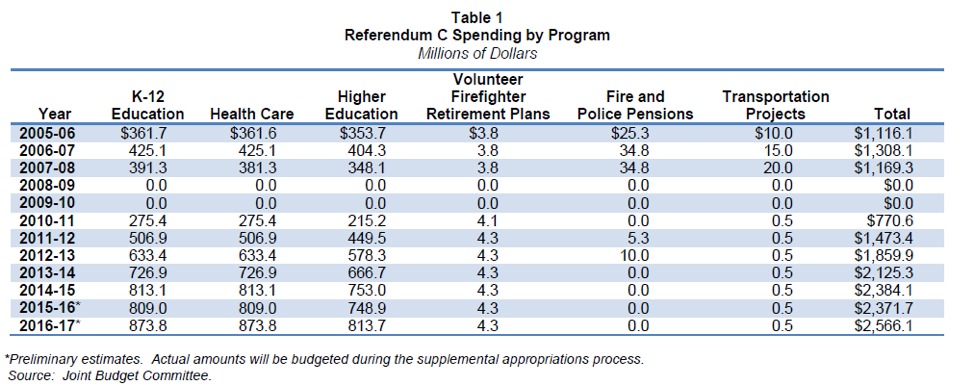 Now the tax and spend coalition wants more.
Now the tax and spend coalition wants more.
Some state officials are understandably delighted by any measure that relieves them of the drudgery of running the state on a tight budget. It is much less taxing to be a state legislator when revenues are rising than when they are falling. When spending must be cut, difficult choices are required. No one is happy. Continue reading
Reflecting on 25 years of the Taxpayer’s Bill of Rights (4 letters)
Reflecting on 25 years of the Taxpayer’s Bill of Rights (4 letters)
By DP OPINION | openforum@denverpost.com
March 4, 2017 at 5:00 pm
Jeff Neumann, The Denver Post; photos provided by Thinkstock by Getty Images
Re: “Has TABOR been a good deal?” Feb. 26 Perspective section.
Excellent coverage on both sides of this controversial issue with no surprise in their respective conclusions. Proponents of the Taxpayer’s Bill of Rights simply want the taxpayers to have a voice before taxes are increased beyond TABOR limits. The opponents want to return to the pre-TABOR days with little outside control over government growth and spending. TABOR works as intended. The vast majority of Colorado taxing entities that approached their voters with sound and justifiable projects were met with voter approval, including the statewide Referendum C issue.
Former Secretary of State Scott Gessler’s statement that Democrats are unified in their hatred of TABOR is not true. As The Post reported, “Since 1993, statewide voters have approved only five tax increases out of 17 ballot questions.” Rest assured, countless Democrats (myself included) were among those voters opposing any override or change in TABOR. Moreover, it is two Republican legislators who are currently sponsoring House Bill 1187 to decrease taxpayers’ refunds in future years.
Carl Miller, Leadville
The writer is a former Colorado legislator.
Re: “Break antiquated Colorado tax policy free of TABOR,” Feb. 24 Tim Hoover column. Continue reading
After 25 years, TABOR still works for you
Douglas Bruce, author of the state’s Taxpayer’s Bill of Rights, is pictured in 2005 working on the campaign against Referendum C .
By Penn R. Pfiffner and Douglas Bruce | Guest Commentary
PUBLISHED: February 24, 2017 at 1:01 pm
The Taxpayer’s Bill of Rights works for you and its 25th anniversary this year is worth celebrating. Once again in 2017 you need to protect TABOR from the political elite attacking it.
TABOR belongs to you. It is how you set a broad control on government that must answer to you and your fellow citizens. It has succeeded in keeping a better balance between costly government programs and healthy family budgets.
Everyone has to live within a budget. That’s just life. Staying in budget brings stability to your family and helps you choose the most important ways to spend your money. The value of living within a budget applies not just to individuals and families, but also to government. That’s just smart — and fair.
25 years of TABOR, share your thoughts
Karl Gehring, Denver Post file
The late state Sen. Ken Gordon carries a sign at the Colorado Capitol showing support for Referendums C and D in September 2005. That was the last time voters were asked to allow the state to escape some of the spending limits under the Taxpayer’s Bill of Rights. Voters passed one proposal and killed the other.
By DP OPINION | openforum@denverpost.com
February 18, 2017 at 12:00 pm
Next Sunday’s Denver Post Perspective section will be dedicated to the Taxpayer’s Bill of Rights, which Colorado voters passed 25 years ago. Please send us your thoughts on TABOR: Is it working or not? Should it be amended? Should it be repealed? E-mail us at openforum@denverpost.com with the subject line “TABOR.” Keep your comments to no more than 150 words. We will publish a selection of your responses in Sunday Feb. 26.
Writers will include Colorado Gov. John Hickenlooper, TABOR author Douglas Bruce, and more.
Additionally on Tuesday, Feb. 28 The Denver Post, Denver Press Club and the Colorado Chapter of the Public Relations Society of America will host a Social Perspectives event at the Denver Press Club, 1330 Glenarm Pl. Readers can come and ask questions of the writers and experts who tackle TABOR in Sunday’s Perspective section. The event — free and open to the public — is intended to promote friendly nonpartisan conversations about one of the most controversial topics in our state.
